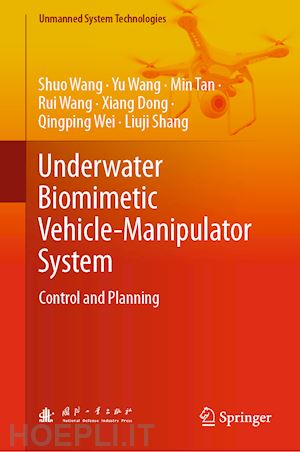Dr. Shuo Wang is currently a professor with the State Key Laboratory of Multimodal Artificial Intelligence Systems, Institute of Automation, Chinese Academy of Sciences, Beijing, China, also with University of Chinese Academy of Sciences, Beijing 100049. He is a member of ISO TC299, a member of the Intelligent Robot Special Committee of the China Artificial Intelligence Society, and an executive director of the China Mechatronics Association. He has been engaged in the research of robot skill learning, underwater biomimetic robots and underwater vehicle-manipulator system. He published more than 100 papers in international journals and conferences. He co-authored 4 books and had 21 patents and 12 software copyrights. He won the second prize of the National Natural Science Award, the first prize of the Beijing Science and Technology Award.
Dr. Min Tan is currently a professor with Institute of Automation, Chinese Academy of Sciences. He received theB.E. degree in automation from Tsinghua University, Beijing, China, in 1986 and the Ph.D. degree in control theory and control engineering from the Institute of Automation, Chinese Academy of Sciences, Beijing, in 1990. His research interests include advanced robot control, biomimetic robot and multirobot system.
Dr. Yu Wang is currently an associate professor with the State Key Laboratory of Multimodal Artificial Intelligence Systems, Institute of Automation, Chinese Academy of Sciences. He is a member of the Chinese Academy of Sciences Youth Promotion Association. He won the CAA outstanding doctoral thesis, the Special Award of the Chinese Academy of Sciences, and he is mainly engaged in research work on underwater bionic robots, underwater mobile robots, etc. He published 60 academic papers in high-level international journals, and he was authorized six patents.
Dr. Rui Wang is currently an associate professorwith the State Key Laboratory of Multimodal Artificial Intelligence Systems, Institute of Automation, Chinese Academy of Sciences. He received the B.E. degree in automation from the Beijing Institute of Technology, Beijing, China, in 2013 and the Ph.D. degree in control theory and control engineering from the Institute of Automation, Chinese Academy of Sciences, Beijing, China, in 2018. His current research interests include biomimetic robots, intelligent control and skills learning. He has published over 60 refereed journals and conference papers, e.g., TIE, TVT, TASE, TSMCA, ICRA, IROS and IFAC. In addition, he was awarded the outstanding doctoral dissertation award of CAAI in 2019.
Dr. QingPing Wei is currently a senior engineer and R&D personnel with the DEC Academy of Science and Technology Co., Ltd. He received the B.E. degree in automation from the University of Electronic Science and Technology of China, Chengdu, China, in 2010 and the Ph.D. degree in control theory and control engineering from the Institute of Automation, Chinese Academy of Science, Beijing, China, in 2015. His current research interest includes nuclear robots and industrial automation.
Dr. Xiang Dong is currently an associate professor with the School of Electrical Engineering and Automation, Anhui University, Hefei, China. He received the B.E. degree in automation from the University of Science and Technology of China, Hefei, China, in 2004 and the Ph.D. degree in control theory and control engineering from the Institute of Automation, Chinese Academy of Sciences, Beijing, China, in 2009. His current research interests include intelligent robots, biomimetic robots and intelligent control. He published more than 20 papers in international journals and conferences. He was granted seven patents of national invention. He also presided and joined many scientific research programs such as the 973 Program, the Key Project Programand National Natural Science Foundation of China.
Dr. LiuJi Shang is a senior engineer working at Shenzhen Sibo Zhilian Technology Co., Ltd. He received the B.S. degree in automation from the Beijing Institute of Technology, China, in 2003 and the Ph.D. degree in control theory and control engineering from the Institute of Automation, Chinese Academy of Science, Beijing, China, in 2011.











